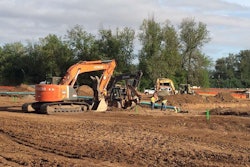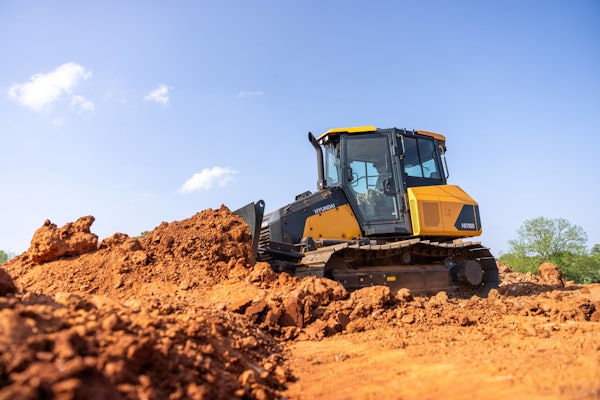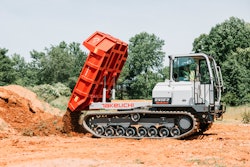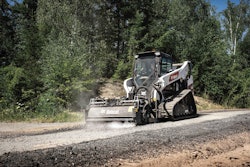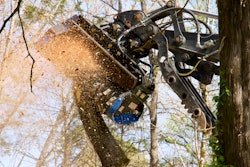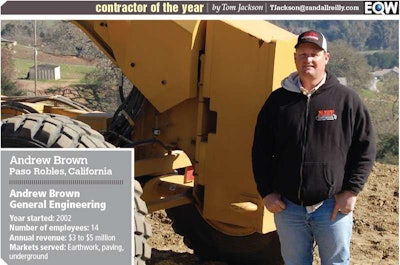
After high school in Atascadero, California, Brown apprenticed with the Operating Engineers Local 12 and worked for Granite Construction until he earned his journeyman’s certificate. Even though he was making good money as a union operator, Brown aspired to someday start his own business. It was something he knew he wanted to do, even as a kid.
In his mid-20s, Brown passed all the tests and applied for a contractor’s license, but, California being California, the state waited a year before deciding to give him one. “They said I didn’t have enough experience,” he relates, which proved not to be the case. After finally earning his license, he bought a used backhoe from the foreman he was working for at the time. In his words, “It was all downhill from there. I turned that one backhoe into 30-plus pieces of equipment in 13 years.”
Brown began by digging a lot of swimming pools and teaming up with a buddy to do residential utility hookups. “I can remember running that backhoe for $50 an hour and thinking I was in tall cotton,” he says.
In nearby Santa Maria, he won a bid to install utilities and finish grading for a 400 home development. It was here that he learned of the bare-knuckled world of working for big developers; always angling to shave costs and bring in prices lower than the bid. “They know how to work you for something less, and it got to the point where every two years they’d have a regime change with their contractors. You were always battling them over this or that,” he says.
But the rough and tumble business climate in California real estate development didn’t discourage Brown. “When somebody says, ‘You’re never going to pull that off,’ and puts me in a corner, that motivates me. I work way better under pressure,” he says.
He inherited some of that attitude from his father, who Brown says helped him develop the fortitude and mental habits to make good business decisions. When Andy was just 20, his dad ripped into him for missing an insurance payment on his truck. “He said ‘I never want to see this again. If there is anything the Browns do, it’s pay their bills. You don’t want to be the guy who doesn’t pay his bills and lose everybody’s respect.’”


